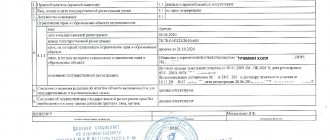Law on official housing
There is no single law on official housing that is suitable for all situations. General provisions are contained in the Housing Code of the Russian Federation. Specification should be sought depending on the field of work. For example, military personnel refer to the Law on the Status of Military Personnel and Order of the Ministry of Defense dated September 30, 2010 No. 1280. If the apartment is in municipal ownership, then you need to look at the relevant administrative regulations of the locality.
The housing code norms on what service housing is highlight the following features of such living space:
- the living space belongs to the state or municipal fund;
- provided in connection with the performance of official duties for temporary residence.
The premises provided can only be isolated and fully suitable for habitation. Today apartments meet these requirements. Rooms in dormitories are not official and are provided if it is not possible to provide a separate apartment.
The general rules for the provision of official housing are as follows:
- a service apartment is issued to a person who works in an enterprise, institution, holds a government position or performs service;
- you can live in the provided premises for the period predetermined by the employment (service) contract - it is the employment relationship that determines the possibility of using the living space;
- the final decision to provide residential premises or not is made by the owner;
- It is impossible to obtain square meters as property, but there is a procedure for circumventing this rule.
Important! In general, the procedure for providing official housing is the same, with a number of nuances that are determined by the owning department.
Difference from social hiring
Residential premises under an employment contract are significantly different in status from municipal premises, which are rented out under social tenancy agreements. Legally, the first refers to a specialized fund.
The differences are as follows:
- municipal apartments are given to those in need due to poor housing conditions, service apartments are given to employees and employees in connection with an employment contract;
- Normatively, social hiring is regulated by Section III, specialized hiring – by Section IV of the RF Housing Code;
- Housing for social rent can be privatized, but specialized housing cannot be privatized.
It is in connection with the possibility of privatization that the most questions arise. Apartments that are on the balance sheet of the municipality may or may not have official status.
The status of official housing is assigned by a special decision of the municipal authorities. How to find out whether a municipal apartment or a service one is to ask the owner for a decision on assigning such status. If there is no such decision, then the apartment does not have official status, which means it can be privatized.
Conditions for transfer of ownership
The privatization of official housing, except for the clear prohibition set out in Law No. 1541-1, is not regulated in any way. But in recent years, cases of litigation over the right to privatize such objects have become more frequent, so by 2021, some practice has developed, which is explained by the decisions of the Supreme Court and clarifications from it. When deciding on the possibility of residents of departmental premises obtaining property rights, one should be guided by the articles of the Housing Code of the Russian Federation and take into account the constitutional rights of citizens. These regulatory documents allow you to coordinate controversial relationships and make the right decisions in difficult situations.
Privatization of departmental housing can be carried out by those persons who live there under a lease agreement concluded with the tenant and have not lost the right to use it. You can become the owner of office premises in two cases:
- The tenant who legally owns the allocated square meters agrees to the procedure.
- For a number of reasons, the living space lost its official status.
The variability of situations in each individual case allows us to expand the range of opportunities for those wishing to privatize departmental housing.
Owner's consent
Municipal housing can be privatized on a general basis; the administration can deny this right only based on the prohibitions set out in Law No. 1541-1. Departmental premises are privatized according to a different principle – licensing.
An employee of the Ministry of Defense or any other organization living in official housing has the right to submit an application for privatization, but only the employer himself decides whether to approve it or not. The absence of federal regulations in this area allows owners to set their own rules. Some enterprises regulate these procedures with internal local acts, which may contain information about who, when and under what conditions can obtain ownership rights to departmental square meters.
In some cases, you can do without the owner’s consent. Thus, military personnel receive the right to free square meters, which can be privatized in the following cases:
- The serviceman was transferred to the reserve due to length of service.
- The dismissal was made earlier due to health reasons.
- Family members of a soldier who died in the line of duty.
- The premature transfer to the reserve took place due to organizational and staffing measures.
Long-term cooperation with the employer is a good reason to obtain ownership rights, but does not guarantee it.
Removing service status
In 2006, a decision was made that obligated all owners of official living space to register it in the appropriate status.
Employers had to submit an application to Rosreestr, supported by documents, with a request to assign the facility departmental status. Not everyone has taken advantage of this right, and today there are many residential premises that, although they were issued by tenants, are currently not listed as either departmental housing or municipal housing. Often such confusion was caused by enterprise reorganizations, bankruptcy and liquidation.
The absence of any official status gives the right to residents living in such living space to carry out privatization. This is legally regulated by Article 7 of the Housing Code of the Russian Federation, which clearly states that relations that do not fall under any regulatory document are regulated by housing standards that are suitable in this situation. Citizens file a lawsuit to recognize their right to the privatization procedure in relation to the disputed object.
Tenants have the right to independently transfer residential properties to the municipal fund. As soon as the transition has been documented, Law No. 1541-1 comes into force in relation to housing and it becomes possible to privatize it on a general basis.
Who is eligible to receive
The following apply for temporary use of official housing:
- civil servants;
- deputies of any level;
- employees of various institutions with state participation (for example, Russian Railways);
- teachers, doctors, firefighters, police officers;
- persons serving in the Ministry of Internal Affairs;
- military.
The list of those eligible for housing is open. Housing legislation does not contain prohibitions on providing individual citizens with this type of living space, so you need to find out about the possibility of obtaining premises for living in your structure.
The main condition is that the citizen should not have other apartments on the territory of the subject in which he could live during his working life.
How to privatize a service apartment
The rental agreement must be in writing; oral agreements on the provision of housing have no legal force. All such documents are urgent, so they must indicate the period of validity (either a specific date or the period while the citizen works at the enterprise). Upon expiration of the period, the employee and his family must move out of the occupied living space, unless otherwise stated in the conditions.
- Step 1. Obtain permission from the property owner;
- Step 2. Change the status of the apartment from “special” to “municipal”;
- Step 3. We prepare technical and cadastral documentation for the property;
- Step 4. We draw up a request and submit it directly to the local administration or through employees of the State Budgetary Institution “My Documents”;
- Step 5. Contact Rosreestr to re-register ownership rights and obtain a certificate.
This is interesting: At what age does a woman go to retire?
Receipt procedure
The general procedure for obtaining official housing can be divided into two stages:
- Submitting an application for recognition as needing housing. At this stage, the person is recognized as having the right to a special apartment and gets in line.
- Next, an application is submitted for the provision of living space directly, an agreement is concluded and the family moves into the apartment.
How a service apartment is provided will be discussed in more detail below.
List of documents
To be placed in the queue - documents for obtaining official housing:
- passports of the employer and his family members (for children - birth certificates);
- marriage or divorce certificate;
- certificate of family composition (house register) from the place of permanent residence;
- an employment contract or document confirming election to a position;
- an extract from the Unified State Register of Real Estate on the applicant’s rights to real estate;
- application for registration.
Attention! If official housing is provided from the municipal fund, the employer will need a petition to provide an apartment to the employee.
Additional documents for official housing will be needed after registration and for immediate receipt of an apartment. These include:
- application for an apartment;
- document on registration according to the previous application;
- all other documents on the list above.
The application forms provided are examples. The administration of a locality or region, as a rule, develops its own forms.
Procedure
Step-by-step procedure for obtaining office space:
- We determine the owner of the apartment. At this stage, it is necessary to establish whose decision on moving in is to be received and which agency will sign the agreement. There are several options. This is the administration of a locality, the administration of a region, an authorized government body (ministry, department, committee, etc.), and the management of an enterprise. It’s better to start your search with your employer, who will tell you where exactly you need to apply.
- We collect documents. The list above is an example. An exact list suitable for a specific situation can be obtained from employees of the competent department. You need to make a copy of each document, and take a package with the originals and copies to the appointment.
- After completing all the certificates, we submit an application to be placed on the waiting list for those in need of housing. The application review period is up to 30 days. As part of the inspection, officials will determine whether there is a real need for the provision of office accommodation. In any case, the applicant is given a written response. The refusal can be appealed to a higher authority or court.
- Having received a positive decision, we wait in line for an apartment. Next, we submit an application for the provision of an apartment directly. The application must be accompanied by the documents from the previous paragraph and a positive decision on placement in the queue. The application is reviewed within 30 days. Based on the application, a decision is issued to provide residential premises and a rental agreement is concluded with the applicant.
- We conclude a rental agreement and move into the apartment. Previously, orders were issued for moving in, but now they have been replaced by rental agreements. Features and a sample contract are in the next paragraph.
Attention! The rules for the provision of specific housing may change, be shortened or supplemented depending on local regulations. For example, to obtain premises for a position in a commercial company, one application is sufficient - immediately for the allocation of premises.
Conclusion of an agreement
The rental agreement for residential premises is concluded between the owner and the applicant. The contract must indicate the tenant's family members who are granted the right to use the apartment and live in it. An important feature is that the agreement is valid during the term of employment.
The text of the contract specifies the responsibilities of the tenant and his family:
- keep the premises in proper condition and use them strictly for their intended purpose;
- make rent payments, utilities and carry out cosmetic repairs;
- keep the premises in their original form and prevent reconstruction or redevelopment.
The text regulates in detail the main issues of interaction between the owner and the tenant.
A sample rental agreement is available for your reference.
Procedure for transfer of ownership
If you want to privatize departmental residential premises, you should be prepared for the fact that the process itself will differ from the standard procedure and take longer. If there are grounds for transfer of rights or the owner’s consent to this procedure, step by step it will look like this:
- An application is written addressed to the tenant with a request to allow the privatization of the living space.
- Permission is obtained from the employer.
- A package of documents is being collected for the local administration. Its completeness should be clarified in advance, as it may differ from the standard one.
- An application is being written for the privatization of the specified premises.
- The papers are transferred to the Housing Department of the locality where the property is located.
- Documents are reviewed for the allotted time, as a result of which a decision is made to allow or deny the procedure. The refusal must be motivated.
- Approval of the application allows you to conclude a privatization agreement, which actually confirms the transfer of ownership rights to the housing.
Having received an agreement on the transfer of ownership rights, it is necessary to register them in the prescribed manner - through Rosreestr.
Submitting an application
Preparing an application begins with collecting documents. This stage is extremely important, since papers should be collected for all persons living in the premises. This list must include:
- Passports of all residents over 14 years of age.
- Birth certificate for children under 14 years of age.
- Consent to privatization or refusal of it.
- The tenant's permission to transfer ownership.
- Rental agreement for living space.
- Cadastral and technical passport of the premises.
- Certificates stating that citizens have not previously privatized municipal or official housing.
- Extract from the Unified State Register of Real Estate.
The list may be supplemented with other forms.
The application is written on specially designed forms. They can be obtained from the housing department or downloaded on the Internet. The application form contains a large amount of information. In particular, the following data is entered into it:
- About the property owner.
- Participants in the privatization process.
- Residential property.
- About the desire to become private owners of square meters.
The correctness of filling out the application, as well as the complete set of documents for it, is checked by the specialist accepting the application. After registering the application, you must wait for the final verdict, which will be announced within a month.
Owner's decision
Privatization of service housing begins with the decision of the owner. You can get it by submitting an application to your employer. This document is written arbitrarily, the main thing is that it contains the following points:
- On what basis and when was the residential premises allocated?
- Information about the premises.
- The number of persons living in the apartment, including all registered family members.
- What reasons, in the applicant’s opinion, are decisive for issuing permission to transfer ownership.
The statement must fully explain the employee's position. It would be a good idea to support what has been said with references to internal regulations or state legislation.
The owner of the living space makes a decision not based on his personal opinion and preferences. He must take into account whether there are justified reasons for refusal or, conversely, approval. For example, the organization’s Charter may stipulate that after serving a certain continuous period, an employee has the right to privatize living space or other conditions.
The owner issues a decision in writing, regardless of whether it is positive or negative. The paper is certified by the manager’s signature and a round seal and must be registered as an outgoing document.
Conclusion of an agreement
A positive outcome of privatization is expressed in the conclusion of an agreement on the transfer of ownership rights. This document is concluded between the current and future owner of the residential premises. The agreement is drawn up according to the rules established by the Code of Civil Procedure of the Russian Federation. It must contain comprehensive information about the procedure being carried out, the rights and obligations of the new owner after taking possession.
The privatization agreement is proof that the office premises have passed into the possession of these citizens. It is filled out as follows:
- Information about the residential premises is entered - address, size of the total and living area, number of rooms, etc.
- Information about each participant in the agreement. Please note that the agreement includes information about all residents who receive their share of the premises.
- The size of the shares is determined for each.
- Information about the rental agreement, which allowed move-in and gives the right to stay.
- Grounds for transfer of property.
- Responsibilities assigned to new owners.
The agreement is signed by all participants in the privatization and by the representative of the municipal government responsible for the privatization of residential properties.
Termination of an agreement
The rental agreement for premises is terminated in the following situations:
- the term of the employment contract or election to a position has expired;
- by agreement of the parties - at any time;
- at the request of the employer - at any time upon written application;
- at the request of the owner - only through the court if the tenant violates the terms of the contract.
In any case, after termination of the contractual relationship, the apartment is transferred back to the owner. If the tenant refuses to voluntarily leave the premises, he can be forcibly evicted through the court and then the FSSP.
Who can't be evicted
You cannot forcibly evict from an apartment:
These categories must be provided with other housing within the city upon eviction.
How to get a service apartment for a doctor in Moscow? where to go
Chapter 6 of the law. Specialized residential premises of the housing stock of the city of Moscow Article 54. Conditions for the provision of service residential premises from the specialized housing stock of the city of Moscow 1. Service residential premises from the specialized housing stock of the city of Moscow are provided to citizens who are not provided with residential premises in the city of Moscow, if they: 1) submitted an application on providing them with office housing from the specialized housing stock of the city of Moscow; 2) have citizenship of the Russian Federation; 3) are in an employment relationship with a government body of the city of Moscow or an organization (enterprise) of the city of Moscow, hold government positions in the city of Moscow or positions in the state civil service of the city of Moscow. 2. The list of government bodies of the city of Moscow or organizations (enterprises) of the city of Moscow, whose employees are provided with office living quarters from the specialized housing stock of the city of Moscow, is established by legal acts of the Moscow Government.
LAW OF THE CITY OF MOSCOW dated January 27, 2010 N 2 “FUNDAMENTALS OF HOUSING POLICY OF THE CITY OF MOSCOW” (as amended by Laws of the City of Moscow dated 10/20/2010 N 43, dated 06/08/2011 N 26) read Part 4 of Art. 27 Citizens who are in labor relations with a government body of the city of Moscow or an organization (enterprise) of the city of Moscow and who, in accordance with Article 54 of this Law, have the right to be provided with official residential premises from the specialized housing stock of the city of Moscow, are provided with residential premises under a contract for the rental of official residential premises .
This is interesting: Calculation of sick leave for pregnancy and childbirth in 2020 after a change of workplace
Military personnel
The status of military personnel is regulated in more detail than in other structures. To obtain an apartment, a serviceman submits a report addressed to the head of the unit where the serviceman arrived for duty. Attached to the report are the standard documents listed above plus documents related to the service.
We published a detailed article about official housing for military personnel with document forms at this link.
Dormitory or rental
If there are no apartments available, with the consent of the serviceman, his family may be provided with a dormitory for living at the rate of at least 6 meters per person.
Military personnel also have the opportunity to take advantage of the sub-hire option. For renting housing, the employee will receive compensation from the budget according to the report. The size is as follows:
- capital and St. Petersburg - 15,000 rubles;
- cities and regional centers – 3,600 rubles;
- other settlements – 2,700 rubles.
Responsibilities of the teacher
But this is not all the requirements for the teaching staff. The thing is that the job responsibilities of a modern teacher are that you must instill in children love for the Motherland and patriotism. And this is all taking into account the absence of imposition of religious views.
Perhaps there is one more area that is included in the job responsibilities of a modern teacher. This is especially true for younger grades. And cases when new students from other schools come to you. What are we talking about?
Doctors and teachers
Doctors and teachers are another socially significant category of employees. There is no federal housing distribution program for them, so it is necessary to seek clarification:
- to the regional health department - doctors;
- to the regional Department of Education - to teachers.
As a rule, service housing is provided as part of health and education development programs in the region. The Department for State Property Management can also handle the distribution of premises, but specific conditions are developed by the relevant departments.
When and in what cases is privatization of official housing possible?
For example, shift workers who have to travel from other cities can count on this. Foresters and rangers, whose workplace is sometimes located in less accessible areas, can also receive a departmental apartment. Other examples: rural doctors and teachers, military personnel, janitors, as well as deputies, government officials, law enforcement officers, firefighters, customs officers, and tax officials.
Despite the fact that housing is provided to citizens temporarily and only for the period of existence of labor relations with the employer, in most cases, a departmental apartment becomes the only one for the employer and his family. The salaries of many of these specialists are low, and it is difficult to buy their own housing. Dismissal threatens eviction for everyone who is not listed in Part 2 of Art. 103 residential complex, so privatization of a service apartment is the only way not to end up on the street.
Russian Railways
Some Russian Railways employees need to live close to work - and the company provides them with this opportunity.
The procedure for providing office housing:
- When concluding an employment contract, Russian Railways undertakes to provide an apartment.
- Based on the contract, the employee is entered into the internal accounting database of those in need of residential space.
- Next, the available apartments are distributed among the registered employees, and rental agreements are concluded.
- After termination of the contract, the employee vacates housing within a month.
Special norms have been laid down for the provision of accommodation to Railway employees, which can be downloaded here.
Restrictions on privatization
Privatization as a procedure cannot be applied in every case. To carry it out, certain conditions must be present. According to the law, every citizen has the right to privatize living space, but only those who live in social premises legally, that is, have registration and a social tenancy agreement concluded with the local administration, can use it. Office premises do not fit into these categories because:
- They are provided not by the state, but by a specific employer.
- Between the parties there is simply a rental agreement, not a social lease agreement.
And the object itself is on the balance sheet of the enterprise, not the municipality, which does not allow it to be classified as real estate subject to privatization.
All these restrictions and conditions do not deny the very possibility of privatization. But unlike municipal property, office premises can be transferred to the category of private property only by permitting.
Many enterprises establish certain criteria, after fulfilling which the employee can privatize the allocated housing. This may be an additional measure to reward its employees for long and responsible work or a way to attract qualified personnel. Sometimes the privatization of official housing is carried out not thanks to, but in spite of, if the enterprise needs to get rid of the housing stock and responsibility for its maintenance.
State and municipal civil servants
Civil servants receive the right to premises from the moment of concluding a contract for service and appointment to a position. Methodological issues regarding the distribution of premises are decided by the relevant department. The lease agreement is signed by the department authorized to dispose of state or municipal property.
Additionally, a civil servant may qualify for a one-time subsidy for the purchase of housing. It is provided for by the Law on Civil Service and Decree of the Government of the Russian Federation of January 27, 2009 N 63.
Are there laws so that official housing becomes property over the years?
In fact, there is such a law. after 10 years, the apartment ceases to be a service apartment and is transferred to the resident on the basis of a residential tenancy agreement; subsequently it can be privatized. But if the administration says so, it is necessary to establish the status of the housing provided to you; perhaps the apartment is not a service apartment, it belongs to your employer and is leased to you. What agreement did you enter into when you moved in?
According to paragraph 2 of Article 4 of the Law “On the Privatization of Housing Stock in the Russian Federation,” only the owners of the housing stock are entitled to make a decision on the privatization of office residential premises, and this right is given to them as an exception, so it is impossible to force them to do this. The Constitutional Court recognized this norm as not contradicting the Constitution of the Russian Federation.
Upon retirement
The Housing Code protects the rights of pensioners who rent housing provided by their service. Even if the tenancy agreement has terminated, it will not be possible to forcibly evict a pensioner.
To evict him, he must be provided with other housing, which must:
- be located on the same territory;
- be well-maintained;
- comply with technical standards.
At the same time, it is legal to ignore the size of the alternative apartment, as noted by the Plenum of the Supreme Court of the Russian Federation in paragraph 42 of Resolution No. 14 of July 2, 2009. A pensioner may be provided with a smaller apartment in exchange.
Regulatory regulation
The privatization procedure is regulated by Law No. 1541-1, which was put into effect on July 4, 1991. This regulatory act defines the conditions for participation in the program for obtaining municipal property into private ownership. There are three main criteria:
- The procedure is free of charge.
- The decision to privatize is made independently and voluntarily.
- You can privatize living space once.
For many years, the Law had deadlines for implementation, which limited the possibilities of using the right to privatization. But in February 2021, this restriction was lifted so as not to infringe on the interests of those citizens who did not have time to exercise their right.
Legislative norms governing the privatization procedure establish some restrictions. According to them, the following cannot be privatized:
- Emergency residential facilities.
- Rooms located in dormitory buildings.
- Residential area, which is located on the territory of closed military camps.
- Service housing.
Other reasons for refusal are considered unfounded and are subject to challenge.






